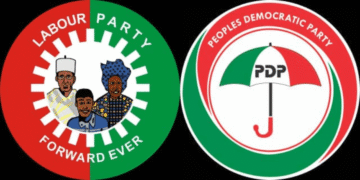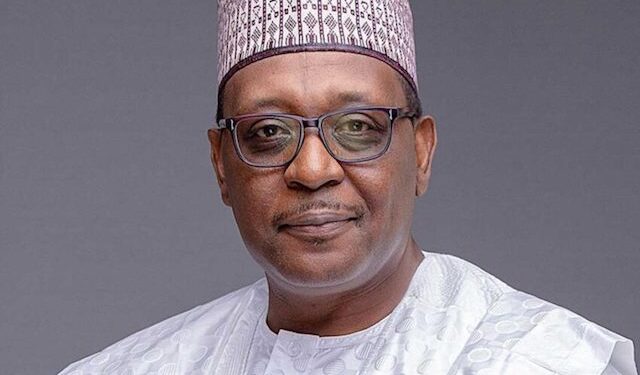Health care financing in Nigeria remains a critical challenge that continues to hinder equitable access to quality health services. According to the World Health Organization (WHO), out-of-pocket (OOP) expenditure in Nigeria accounts for over 70% of total health spending, one of the highest rates in sub-Saharan Africa. This heavy reliance on personal spending often leads to catastrophic health expenditures, especially for poor and vulnerable populations, pushing millions into poverty annually. In a country where over 40% of the population lives below the poverty line (NBS, 2020), the urgent need for innovative and sustainable health care financing strategies cannot be overstated. A shift from fragmented, reactive financing mechanisms to structured, pre-paid, and pooled financing systems is crucial to alleviating the economic burden and increasing access to life-saving care.
One of the most promising approaches is the expansion of mobile health savings schemes. With over 220 million mobile phone subscriptions recorded by the Nigerian Communications Commission (NCC) in 2023, mobile technology provides a viable platform for financial inclusion in health. These schemes allow individuals, particularly in the informal sector, to save small, manageable amounts of money specifically for health care.
Organizations such as mHealth Nigeria and CarePay are already piloting health wallets that enable low-income earners to save, receive donations, and pay for health services via mobile phones. To enhance impact, these platforms should be linked with public health insurance programs and supported through matching grants or subsidies by federal, state, and local governments to encourage participation among poor households.
Community-Based Health Insurance (CBHI) is another viable and contextually relevant strategy. Although Nigeria launched the Basic Health Care Provision Fund (BHCPF) under the National Health Act of 2014 to support primary health care and health insurance for the poor, only about 5% of Nigerians are currently covered by any form of health insurance (NHIA, 2023). CBHI schemes, which pool resources at the community level, offer a grassroots solution to increasing health financing coverage. For example, the CBHI pilot in Kwara State showed significant improvements in health service utilization and reduction in OOP payments. The National Health Insurance Authority (NHIA) should prioritize scale-up of CBHI programs through legislative support, technical guidance, and integration with the BHCPF to reach millions of rural dwellers.
Results-Based Financing (RBF) is another impactful strategy that ensures efficiency, accountability, and value for money in health spending. Under the World Bank-supported Nigeria State Health Investment Project (NSHIP), RBF mechanisms provided financial incentives to health facilities based on verified delivery of health services. The NSHIP RBF pilot in states like Adamawa, Nasarawa, and Ondo led to a 38% increase in skilled birth attendance and a 21% improvement in immunization coverage within just two years (World Bank, 2020). Scaling up RBF nationwide can significantly improve performance and resource utilization in both primary and secondary health care levels. This model ensures that funds are linked directly to results, reducing wastage and encouraging a more responsive health system.
Moreover, Public-Private Partnerships (PPPs) hold significant potential for expanding the fiscal space for health in Nigeria. With dwindling government revenues and a growing population projected to reach 223 million in 2025 (UNFPA), leveraging private sector resources and expertise is critical. PPPs can be structured to support health infrastructure development, pharmaceutical logistics, diagnostic services, and even digital health innovations. Notably, the Lagos State Health Scheme’s partnership with Hygeia and AXA Mansard has increased insurance uptake and improved service delivery in Lagos. Similar partnerships, when adequately regulated and monitored, can bridge gaps in service delivery and promote sustainable financing models in both urban and rural areas.
To reduce financing burdens and promote savings, innovative taxation and earmarked funding mechanisms should be explored. For example, in Ghana and Rwanda, specific taxes on luxury items, mobile transactions, or telecommunications have been successfully channelled into health insurance and service provision. Nigeria could implement a modest health levy on airtime or alcohol/tobacco products, with revenues directly allocated to the BHCPF. Furthermore, increasing fiscal accountability and transparency in existing health budgets can ensure that allocated resources reach their intended targets and are efficiently utilized. Data from BudgIT (2022) reveals that recurrent health expenditure still dominates over capital investment, underscoring the need for strategic reallocation towards preventive and primary care services.
Digital health financing platforms and health technology innovation also play a key role in modernizing health financing. Technologies such as blockchain can ensure transparency in fund management, while artificial intelligence (AI) tools can track real-time spending and health outcomes. Integration of these technologies with NHIA operations can improve enrolment, claims processing, fraud detection, and data-driven planning. For instance, the National Health Management Information System (NHMIS) should be upgraded to integrate financing data, enabling policymakers to monitor funding flows, detect bottlenecks, and measure impact across the system. Technological innovations reduce administrative costs, improve efficiency, and promote accountability in health financing.
In conclusion, the transformation of health care financing in Nigeria depends on the political will to implement innovative, inclusive, and sustainable strategies. Mobile health savings, community-based insurance, results-based financing, public-private partnerships, dedicated health levies, and digital technology integration present viable pathways to reducing out-of-pocket spending, improving resource mobilization, and expanding access to quality care. As Nigeria moves toward achieving Universal Health Coverage (UHC), these innovations must be mainstreamed into national and state-level health policies. Only then can the country move closer to a health system that is equitable, financially sustainable, and capable of meeting the needs of all its citizens.









































